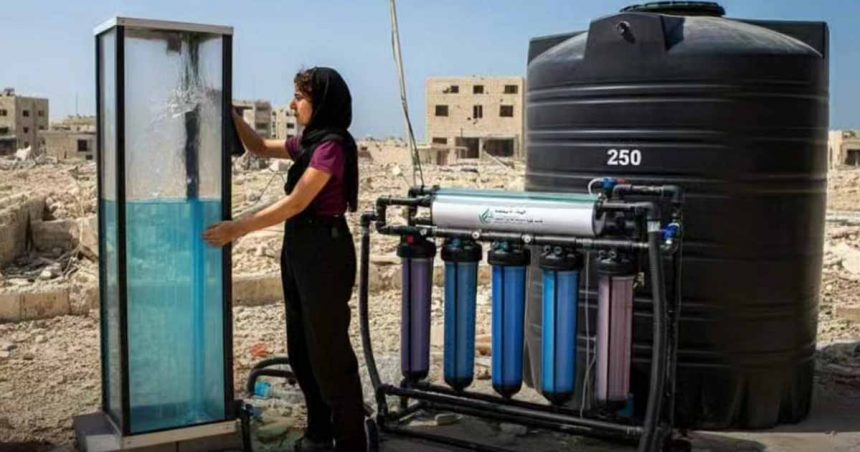In the war-torn region of Gaza, amidst scarce water supply and damaged infrastructure, Inas al-Ghul, a 50-year-old agricultural engineer, has created a makeshift solar-powered water filtration system that has become a beacon of hope for Palestinians enduring harsh conditions. Using salvaged materials like wood from aid pallets and abandoned window panes, Ghul built a glass-covered trough that harnesses the greenhouse effect to turn saltwater into drinkable water.
The process is simple yet effective: sunlight trapped by the glass panels heats the water in the trough, causing it to evaporate. The water vapor then condenses, leaving behind the salt. The purified vapor travels through a hose into containers filled with activated charcoal for further filtering. Remarkably, Ghul’s system does not require electricity, solar panels, or advanced filters, relying solely on the abundant sunlight in Gaza.
Access to clean water in Gaza was already limited before the conflict, with the majority of the population relying on a polluted aquifer. With the current situation, the need for clean water is even more pressing. Ghul’s invention has provided a lifeline for displaced Palestinians, offering a simple yet crucial solution to the water crisis.
Despite the challenges and the destruction of water infrastructure in Gaza, Ghul’s resilience and innovation shine through in her solar-powered filter. It serves as a symbol of hope and human ingenuity in the face of adversity. As the conflict continues, solutions like Ghul’s will be essential in addressing the long-term water crisis in Gaza. In the midst of devastation, individuals like Ghul offer a glimpse of a brighter future for the region.






